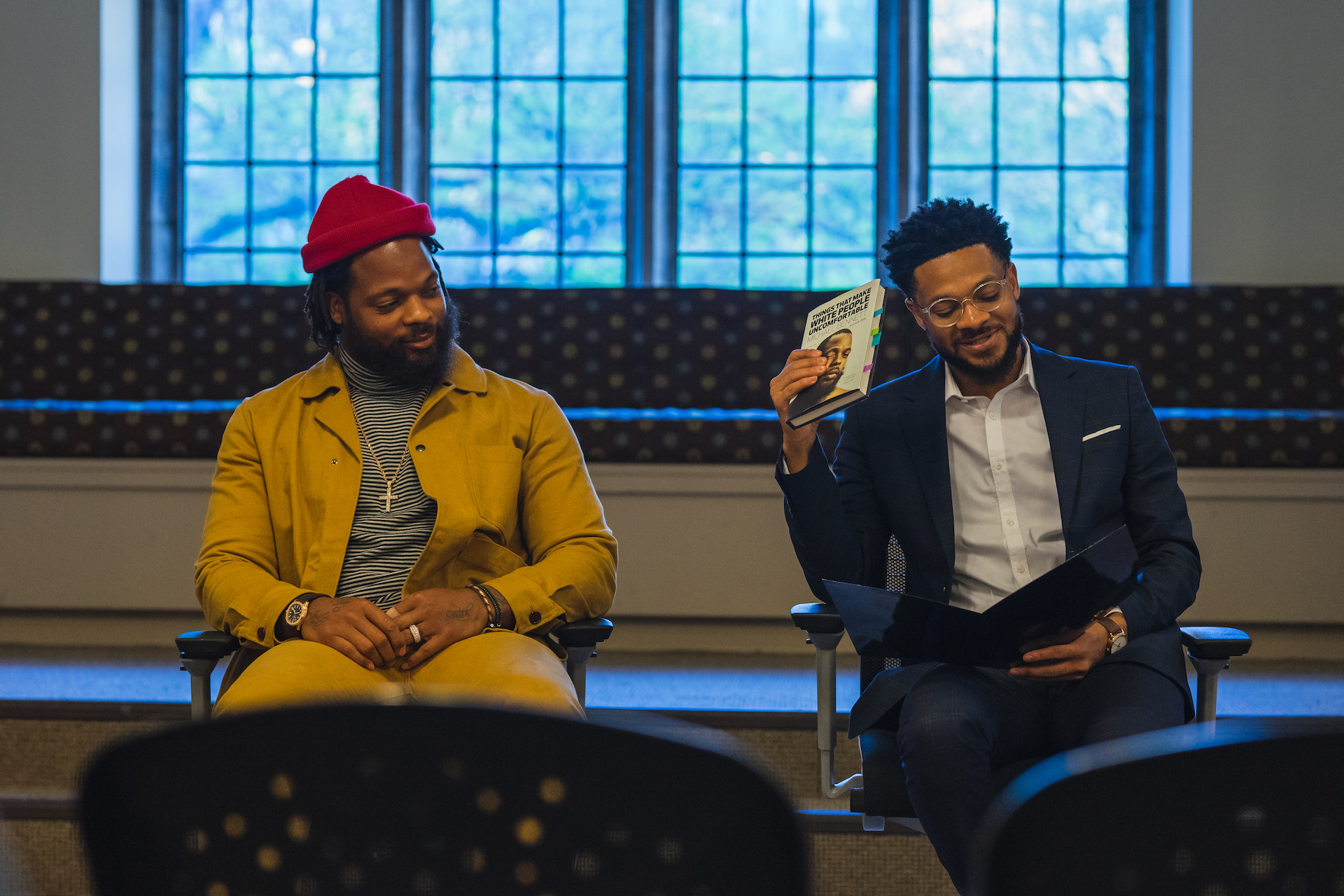Stanley Talbert ’16 was recently awarded a dissertation fellowship from the Forum for Theological Exploration! He is currently in the midst of completing his dissertation and we had a conversation via phone about what the award means for him and the support it provides in his ongoing research:
Can you tell us more about your fellowship, what is the Forum for Theological Exploration?
The Forum for Theological Exploration is an organization that “cultivates diverse leaders for Christian ministry and theological scholarship.” In that framework, FTE helps Ph.D. students of color finish their program and produce scholarship within a context that has been difficult for many African Americans, as well as Latinx and Asian students. I heard about it through my advisor Dr. Andrea White, Dr. Angela Simms, as well as the Society for the Study of Black Religion (co-founded by Dr. James Cone).
How do you see the fellowship contributing to the work you’re currently doing?
My dissertation is called “Playing in a Strange Land: A Revolutionary Theology of Play”, and it examines the emergence of modern racism as a re-creation of human bodies and relations constructed through the entanglement of play, sport, and theology. FTE’s Ph.D. Fellowship provides support through networking opportunities, collaborations with colleagues on projects, as well as mentors who offer personalized help on the dissertation and navigating the scholarly life. I’ve found that having academic mentors outside of your institution is helpful in adding to your intellectual resources and giving different perspectives on the academy, church, and society.

What were the experiences which gave rise to your research interests?
The questions that I am exploring in my dissertation began as a child athlete. On the one hand, I was playing basketball on Fridays, and on the other hand, I was preaching (as a boy-preacher) on Sundays. I remember wrestling with how both sport and the church shaped me as a moral, ethical human being. During my MDiv years at Union, I attended the Sports Illustrated Person of the Year ceremony for Serena Williams. While completing Ph.D. coursework, I took Dr. Eboni Marshall Turman’s Introduction to Womanist Theology and Ethics at Yale Divinity School. For the final paper, we had to write about a social witness to womanist theology ethics. I took that opportunity to write about Serena Williams in a paper entitled, “Toward a Theo-Ethic of Play: Eboni Marshall Turman and Serena Williams at the Net”. After receiving support from my advisor Dr. White, I presented this paper at the national AAR meeting in the Religion, Sport, and Play Unit. It was my first instance of exploring the relationship between sports and liberation theology.
How did your time at Union shape and inform the scholarship you’re engaged in?
My time at Union exposed me to liberation theology, which is key to the project I’m currently working on, as well as exposing me to an interdisciplinary mode of thinking. The creativity of the city complemented the professors at Union who allowed me to think outside of the box. I received positive affirmation from my professors to engage theological embodiment from my own experiences, something which gave me the courage to think about theology and play in a different way. During my time at Union I also minored in African-American studies. Dr. Farrah Griffin and Dr. Josef Sorett were the readers for my oral comprehensive exam in African American studies. Both scholars helped me develop methodologies to explore sport, African American resistance, and theology in meaningful ways.
What sustains you intellectually and spiritually as you navigate higher education and dominant forms of academic thinking?
The church and my community. At times the academy can devalue spirituality, and while we should hold the church accountable, we should also value its pastoral abilities which often work hand in hand with the prophetic tradition. Also my family. During this journey I’ve had a lot of obstacles, right now I have a six-inch cut down my stomach from a serious surgery during the Covid-19 pandemic. I have been hospitalized more than eight times as a graduate student and candidate. My family, friends, colleagues, and advisors have been incredibly supportive throughout my journey. From the recommendation letters, the resources I’ve received, as well as the spirit of James Cone who continues to walk and talk with me on my journey–I feel blessed. I would also add my community of friends in New York to this list. We eat, dance together, and just be human.
If you had any advice for a student considering a Ph.D. program, particularly those from historically marginalized communities, what would you offer?
I would say that if it’s something you want to do, then do it with all your heart, mind, soul, and body. Give it your all. Spend a lot of time researching the potential programs, potential advisors, and potential locations of study. These are all helpful as you imagine what it would look like to live, breathe, and work within that space. Consider what this Ph.D. is for and how it will help you and your community, church, and society. It’s a wonderful thing, but you have to recognize that it’s challenging and you’ll need people praying for you. Know that you’re needed, not for the academy to commodify and exploit you, but for your community and your ancestors. You are needed to fight white supremacist ideologies, deconstruct hierarchical apparatuses, and create beloved communities.
